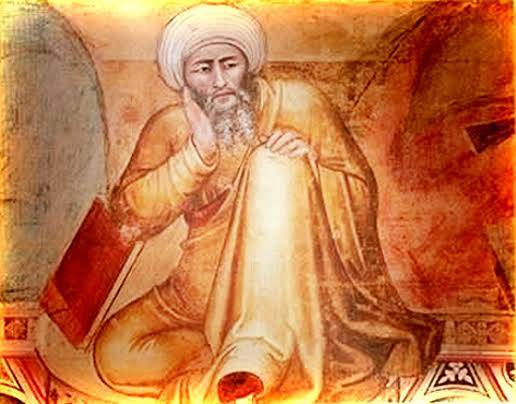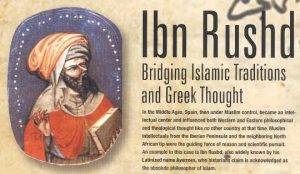
Abu Walid Mohammad Ibn Rushd was born in 1128 C.E. in the region of Cordova, Spain. His name comes under the list of the greatest thinkers and scientists of history. Ibn Rushd is the Muslim Scientific thinker and people recognize him as his Latinized name of Averroes. He did a brilliant job by integrating philosophy with Islamic thought. His work themes told that there is no unsuitability between religion and philosophy if they are understandable to a person.
He has different contributions under his hat that included thorough commentaries on Aristotle. Throughout his work, he put greater emphasis on the aspect of Islam.

Ibn Rush; Muslim Scientific Thinker
Education
Ibn Rushd obtained his education on a traditional path. He started his studies in Hadith, linguistics, jurisprudence as well as scholastic theology. Across the journey, he brilliantly wrote several pieces on philosophy, religion attributes of God with aspects of metaphysics, psychology, and origin of the universe. Throughout the span, he excelled in the field of philosophy and jurisprudence. This is why his other recognition is the “jurisprudent philosopher”.
His work
With all the efforts, he wrote around 67 original works and this included 28 works for philosophy, 20 were dedicated to Medicine, 8 for law, 5 on theology while 4 works were dedicated to grammar. Alongside, he did commentaries on Aristotle’s work and on Plato’s “The Republic” that gained the attention of masses. Consequently, his work reflects his great interest in Islam.
He stated in his writing that
A person who studies anatomy will increase his faith in the omnipotence of Almighty God.
His work highlighted the points that a man can get true happiness through mental and psychological health. People who act on the ways described by Almighty find happiness in life.
Astronomy work
Ibn Rushd as a Muslim scientific thinker conducted different astronomical observations in Morocco at the age of 25. These observations led him to discover an unobserved star. Moreover, he presented a view that the moon is opaque and it is having some parts thicker than others. The thicker parts are receiving more light from the sun as compared to the thinner parts of the moon. Further, he also extended his observation to the descriptions of sunspots.
Work in Medicine Field
With persistent hard work, he made important contributions in the medicine field. He wrote a well-known book Kitab al Kulyat fi al Tibb. This book was also translated into Latin. This Latin version is “Colliget”. This work consisted of 7 books with the aspects of anatomy, physiology, pathology, symptomatology, pharmacology, hygiene and therapeutics. Throughout his work, he put light on the diagnosis, cure, and prevention of several diseases. His research led him to worthy observations.
Philosophical work
Ibn Rushd is the great Muslim scientific thinker whose thoughts are all creative with powerful arguments. In philosophy, his significant work is Tuhafut al-Tuhafut. This work was a response to Al-Ghazali’s work. Though his work was under criticism by several Muslim scholars but influenced many people as well. However, Ibn Rushd did the longest commentary based on the interpretation of Quranic concepts.
Death
He died in 1198 in Marrakesh and he was buried there. However, after three months, his body was moved to Cordova. Ibn Rush is one of the significant influencers and great thinkers of Muslim history.
So these were the life aspects of Ibn Rushd that influenced Muslim Scientists well. Do you have more information to add here, then do share with us!







